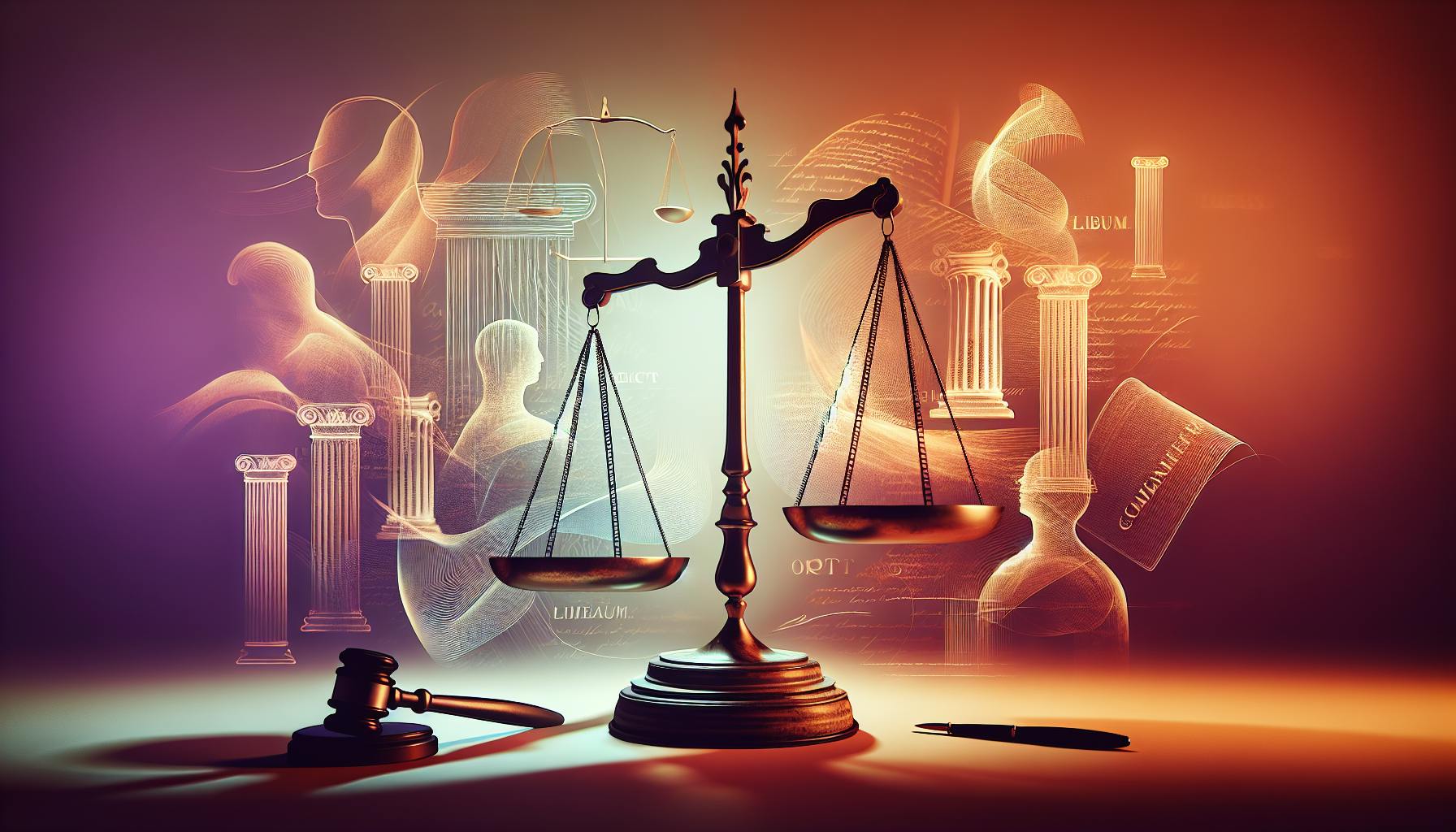Most would agree that legislation enacted after major events seeks to balance security with civil liberties.
This article explores the USA PATRIOT Act - its origins, provisions, debates and legacy - to better understand this balance in American law.
We'll examine the Act's historical context, core objectives, and civil liberties implications, as well as reforms like the USA Freedom Act. Through an objective lens, we can thoughtfully reflect on security and rights in a post-9/11 world.
Introduction to the USA PATRIOT Act
The Patriot Act, formally known as the Uniting and Strengthening America by Providing Appropriate Tools Required to Intercept and Obstruct Terrorism (USA PATRIOT) Act of 2001, was passed 45 days after the September 11, 2001 terrorist attacks in the United States. This legislation gave law enforcement agencies and intelligence services expanded authority to investigate, monitor and detain individuals suspected of terrorism.
The Act remains controversial due to concerns about privacy rights and civil liberties. However, it led to enhanced information sharing between agencies and modernized tools to combat terrorism financing and money laundering.
Historical Context: Post-September 11, 2001 Landscape
In the aftermath of September 11, 2001, the threat of terrorism took on new urgency. Nearly 3,000 people were killed in the attacks on the World Trade Center and Pentagon. There were calls for the government to take swift action to prevent future attacks.
Congress moved quickly to pass anti-terror legislation. The USA PATRIOT Act was introduced in October 2001 and signed into law by President George W. Bush on October 26, 2001. There was intense political pressure to approve the bill quickly.
Key context that led to the Patriot Act:
- Revelation that government agencies had intelligence related to the 9/11 hijackers before the attacks that wasn't effectively shared or acted upon
- Need to update laws to keep pace with technological advancements that terrorists could exploit
- Goal of equipping law enforcement and intelligence agencies with tools to prevent another major attack
Core Objectives and Provisions of the Patriot Act
The Patriot Act expanded federal agencies' surveillance and investigative powers to combat domestic and international terrorism. Some key provisions:
- Allowed FBI agents to seek a court order to obtain any tangible item relevant to terrorism investigations. Previously they could only seek such orders for business records.
- Removed obstacles that barred intelligence agencies from sharing information with criminal investigation agencies.
- Required financial institutions to monitor accounts more closely for suspicious activity that could indicate money laundering or terrorist financing.
- Increased penalties for terrorism crimes and closed loopholes that hindered terrorism investigations.
Overall, the Act aimed to dismantle barriers to effective information sharing and provide law enforcement agencies with more robust tools to monitor terrorist threats.
Civil Liberties Debate and the Patriot Act
A number of civil liberties groups, including the Electronic Privacy Information Center and Center for Democracy & Technology, raised concerns about the Patriot Act's infringement on privacy rights and threat to civil liberties.
Key concerns included:
- Expanded government surveillance powers that could lead to abuse
- More access to personal records with a lower legal threshold
- Overly broad definitions of "domestic terrorism" that could target protestors and activists
- Lack of judicial oversight over new executive powers
- Need for sunset provisions to require Congress to reassess the law's necessity
Debate continues today about balancing enhanced security measures with Constitutional freedoms. The USA Freedom Act of 2015 imposed some new limits, but largely left the Patriot Act powers intact.
What is the Patriot Act in simple terms?
The Patriot Act is legislation passed in 2001 to expand the surveillance and investigative powers of law enforcement agencies in the United States. The goal was to improve their ability to prevent terrorist attacks in the aftermath of September 11, 2001.
In simple terms, the Patriot Act:
- Allowed increased surveillance of phone, email, medical, financial, and other records, with reduced judicial oversight
- Expanded the use of National Security Letters to compel businesses to hand over private customer records without a court order
- Enabled broader information sharing between domestic law enforcement and intelligence agencies
- Increased penalties and expanded definitions for terrorism crimes
The full name of the legislation is the Uniting and Strengthening America by Providing Appropriate Tools Required to Intercept and Obstruct Terrorism (USA PATRIOT ACT) Act of 2001.
Supporters argued the Patriot Act was necessary to modernize surveillance laws to combat terrorism in the digital age. Critics argued it went too far in violating civil liberties without adequate checks and balances. There has been ongoing debate around striking the right balance between security and privacy.
In 2015, some expired sections of the Patriot Act were replaced by the USA Freedom Act, which placed some new limits on bulk data collection. However other controversial provisions remain in effect to this day.
How does Patriot Act violate First Amendment?
The Patriot Act has raised concerns regarding violations of civil liberties protected under the First and Fourth Amendments.
Specifically, the Act expands the government's ability to conduct surveillance and search private records with limited judicial oversight. This could enable investigations of individuals for exercising free speech rights protected under the First Amendment.
Additionally, the Act authorizes searches and surveillance without requiring notice to those impacted. This may violate the Fourth Amendment's protection against unreasonable searches and seizures without probable cause.
However, defenders argue the Act contains necessary measures to enhance national security and that additional oversight has been implemented over time. Reasonable people can disagree on the appropriate balance between security and liberty.
Ultimately, the constitutionality of aspects of the Patriot Act remains subject to ongoing legal debate and interpretation by the courts. Maintaining public awareness and discussion regarding these issues remains vital to ensuring protection of civil liberties.
Is the Patriot Act still in effect 2023?
The Patriot Act was passed in 2001 in response to the September 11 terrorist attacks. Key provisions of the law were set to expire in 2020, leading many to wonder if the Patriot Act is still in effect in 2023.
In 2020, efforts to extend the expiring provisions of the Patriot Act were not passed by the House of Representatives. As a result, several key parts of the law regarding surveillance, information sharing, and terrorism investigations have expired.
However, some provisions of the original Patriot Act remain in effect in 2023. These include measures related to money laundering, financial institution compliance, and due diligence procedures. Sections of the law authorizing bribery investigations and enhancing surveillance procedures in terrorism cases also remain active.
While major portions of the Patriot Act have expired, the legacy of the legislation remains influential. Related laws such as the USA Freedom Act of 2015 carried forward some expiring provisions of the Patriot Act, while modifying others. Ongoing legal and legislative debates continue around government surveillance and privacy rights in the post-9/11 era. The expiration of key Patriot Act powers in 2020 marks a shift in these policies, but does not represent a full sunset of the law's provisions.
In summary - while substantial portions of the original Patriot Act have expired as of 2023, elements of the law live on through related legislation and policy. The Act's attempts to balance security, privacy, and civil liberties remain at the center of an incomplete process still underway nearly two decades after 9/11.
sbb-itb-585a0bc
What did the Freedom Act do to the Patriot Act?
The USA Freedom Act, passed in 2015, introduced several key reforms that limited some of the surveillance powers granted by the Patriot Act. Specifically, it:
-
Prohibited the NSA from continuing its controversial bulk collection of American's phone records. Previously, the NSA gathered metadata on millions of phone calls under Section 215 of the Patriot Act.
-
Ended the NSA's bulk collection of other records like financial transactions and medical records under Section 215. Only specific targeted records searches are now allowed.
-
Required the NSA to obtain a court order to access call detail records from telephone companies. The records can only be obtained for terrorism investigations.
-
Placed limits on national security letter statutes that previously allowed the FBI to obtain records without court approval. The FBI now needs supervision from courts.
So in summary, the USA Freedom Act enacted meaningful surveillance reforms that better protect civil liberties. It ended several controversial bulk data collection programs and instituted new safeguards and transparency measures on the government's ability to access private records. This was seen as curtailing some of the broad surveillance powers previously granted after 9/11.
Surveillance Under the Patriot Act: An Overview
The Patriot Act expanded government surveillance capabilities to detect and prevent potential terrorist threats. However, it also raised privacy concerns regarding the access and sharing of personal data. This section will analyze the tradeoffs made between security and civil liberties.
Easing the Process for Obtaining Wiretaps and Surveillance Orders
The Patriot Act made it easier for law enforcement to secure court orders for wiretaps and electronic monitoring. Previously, different standards existed for wiretaps in criminal cases versus intelligence investigations. The Patriot Act enabled intelligence agencies to more readily conduct domestic surveillance using the more lenient criminal standards.
While this change promoted information sharing and coordinated efforts against terrorism, it sidestepped traditional checks and balances. The implications for privacy protections sparked debate regarding the appropriate balance between security and liberty.
Expansion of Subpoena Powers for Personal Records
The Patriot Act expanded the scope of information accessible to the government via National Security Letters (NSLs). NSLs allow federal agencies to secretly subpoena personal records from third parties, such as libraries, doctors, and internet providers, without court approval.
The minimal judicial oversight and expanded breadth of data obtainable by NSLs generated controversy. However, proponents argued wider access to information was necessary to connect the dots between diffuse terrorist threats. Ongoing discussion continues regarding instituting firmer safeguards while retaining access to critical intelligence.
Facilitating Data Sharing Among Federal Agencies
Information silos between law enforcement and intelligence agencies contributed to the government's failure to prevent the 9/11 attacks. The Patriot Act authorized unprecedented information sharing to unite disjointed counterterrorism efforts.
While enhanced data exchange helped agencies "connect the dots", privacy advocates warned it could enable unrestrained mining of personal data without cause. Later oversight measures, such as the USA Freedom Act, aimed to balance effective access with reasonable protections against unwarranted prying. This debate persists as technology evolves.
Combating Terrorist Financing and Money Laundering
The Patriot Act introduced several amendments to existing legislation like the Bank Secrecy Act aimed at disrupting the financial networks used by terrorist organizations. These provisions empowered law enforcement and regulatory agencies to better track suspicious transactions and freeze assets associated with terrorism.
Strengthening Anti-Money Laundering Protocols
The Patriot Act expanded the anti-money laundering obligations of financial institutions as laid out in the Bank Secrecy Act of 1970. It required banks, brokerages, and other financial services providers to establish anti-money laundering programs, verify customer identities, monitor accounts for suspicious activity, and report that activity to the appropriate authorities.
These measures made it more difficult for terrorist groups to funnel money through legitimate financial channels without detection. They also gave law enforcement expanded access to financial records and account histories during investigations.
Empowering Law Enforcement to Investigate and Freeze Financial Assets
The Patriot Act lowered the legal barriers for authorizing searches and seizures related to money laundering and terrorist financing investigations.
Law enforcement agencies no longer needed to demonstrate probable cause to access records and accounts associated with suspected terrorists. The Act also made it easier to obtain court orders to freeze assets linked to terrorist groups or activities.
These provisions enabled agencies like the FBI and IRS to swiftly follow financial trails and disrupt funding channels before attacks could be carried out.
Creating Audit Trails to Combat Tax Evasion and Bribing
In addition to anti-terrorism efforts, the Patriot Act introduced measures to improve financial transparency and prevent other financial crimes like tax evasion and bribery.
It expanded suspicious activity reporting requirements to include transactions associated with tax evasion, money laundering, or violations of the Bank Secrecy Act. It also mandated secure storage of financial account and transaction records to ensure comprehensive audit trails.
These audit trail provisions made it more difficult for criminals and terrorists to conceal sources of income or funding through complex financial schemes. They also aided investigators in reconstructing paper trails during investigations into financial crimes.
Assessing Reforms and the Evolution of Anti-Terrorism Legislation
The Patriot Act granted sweeping surveillance powers to law enforcement agencies in the name of national security. However, concerns emerged over the potential infringement of civil liberties. As a result, reforms and oversight mechanisms were instituted over time to balance security imperatives with privacy rights.
Instituting Oversight Mechanisms for Surveillance Activities
To ensure responsible use of surveillance capabilities, the Office of the Inspector General (OIG) was tasked with overseeing and reviewing FBI activities under the Patriot Act. The OIG conducts audits and investigations to ensure compliance with regulations safeguarding civil liberties. Its reports have led to important reforms. Additionally, the Privacy and Civil Liberties Oversight Board provides analysis and advice to the government on privacy issues associated with counterterrorism efforts.
The USA Freedom Act: Reining in Surveillance Excesses
The 2015 USA Freedom Act imposed several limits on government surveillance, while renewing many provisions of the Patriot Act. It outlawed the NSA's bulk collection of American's phone records, instead requiring more targeted information requests. It also increased transparency around National Security Letters. At the same time, it extended the Patriot Act's roving wiretaps and lone wolf provisions. The bipartisan bill attempted to strike a balance between security and liberty concerns.
Sunset Clauses and the Periodic Review of the Patriot Act
Several controversial Patriot Act powers come up for periodic Congressional review and reauthorization due to sunset clauses. These include roving wiretaps, searches of business records, and surveillance of lone wolf suspects. The need to renew these sections spurs debate over the appropriate scope of government surveillance authority. While the provisions have ultimately been reapproved so far, the sunset clauses force reconsideration of proper oversight.
Conclusion: Reflecting on the Patriot Act's Legacy
Recap of the Patriot Act's Key Changes
The Patriot Act expanded the government's surveillance and investigative powers in several key ways:
- Allowed roving wiretaps to follow suspects across multiple devices
- Enabled secret searches and seizures of personal records without notice
- Lowered the evidentiary bar for obtaining warrants in terrorism investigations
- Required financial institutions to collect and share data to detect money laundering
It aimed to break down barriers between intelligence and law enforcement agencies to facilitate information sharing. Supporters argued these changes were necessary to prevent future attacks, while critics warned of risks to civil liberties.
Ongoing Debates: National Security Versus Civil Liberties
In the aftermath of 9/11, the scale generally tipped toward security over privacy. But in recent years, revelations about the extent of government surveillance have renewed debates over striking the right balance.
Proponents argue expanded powers help thwart attacks and bring criminals to justice. Critics counter that many activities swept up in surveillance pose little security risk and infringe on basic rights. Ongoing legislative reform and court rulings continue shaping these boundaries.
The Patriot Act's Enduring Influence on Privacy and Surveillance Law
The Patriot Act impacted subsequent privacy legislation and surveillance practices in long-lasting ways. It pioneered new data-sharing avenues between agencies, normalized secret searches and roving wiretaps, and catalyzed the growth of domestic surveillance infrastructure.
Later laws like the USA Freedom Act amended some Patriot Act powers but left many key provisions intact. Its legacy remains evident across our legal privacy framework today in the ongoing tension between individual liberties and collective security.


